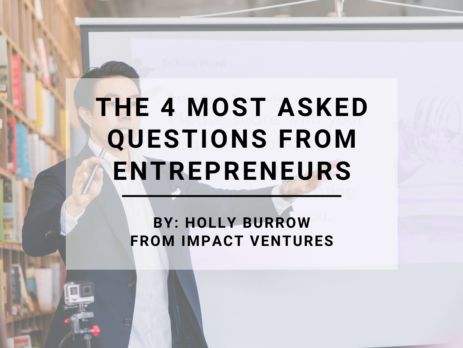Launching and growing a business is one of the most difficult things a person can do. Every entrepreneur needs help at some stage and many of the questions they ask revolve around similar topics. Below are four of the most asked questions and responses that will help save you time and headaches.
1. What should I charge for my products?
This is one of the most important questions a new entrepreneur can ask. The answer will help you to determine your product pricing strategy and your ability to earn a profit.
The first step in deciding what to charge for your products is to know what your costs are (including YOUR time) and have an idea of how much profit you need to make. Many people will try to sell products at a higher price than they are worth, but that strategy can backfire if the market does not see value in the product. This is called product/market fit.
The second step is to search for similar products that are being sold on the market. This will be the going market rate for the solution that you are offering. The only way to know what to charge for your products is by understanding your market. You need to have an understanding of what the competition is charging for similar products and how you can create value outside of what they offer, position yourself as the best choice.
As an example, if you’re selling T-shirts and you notice that the competitor’s prices are very close to yours, but their T-shirts are made of fabric that is not as high quality, then you will want to raise your price point and communicate the difference to your customers. On the other hand, if your competitors have higher prices than you, but their product quality is far superior, then you will want to lower your price or create value in the eyes of your customer by demonstrating how choosing your product or service aligns with their life in a better way. “Why pay more when you can Savemore!” Savemore is a discount grocery store creating value for their customers by reminding them that their deep discounts are a way to stay on a budget that aligns with their lives.
2. How to get my business out to MY specific audience?
In today’s world it can be very easy to ignore your local space and focus on the ever-expanding virtual audience available at your fingertips. When it comes to promoting your business and finding your specific audience, one of the best strategies is to start with a foundation of local market research. Think of this as dropping a stone in the water, the ripples spread out from the center of the drop. If you focus on impact your local space it will generate ripples as your audience supports you.
Local marketing has been proven to be one of the most effective ways to grow your business. Word-of-mouth recommendations are one of the strongest sources of new customers for businesses. Local relationships can carry your business to new heights because of the personal investment that people are likely to make due to your shared physical space.
The best way to promote your business is to provide valuable, interesting content across all channels and by being consistent about sharing the information. That means joining networking events, and having a website that is easy to navigate and filled with useful information. It also means being active on social media platforms or being active on blogging platforms that allow you to share interesting information about your industry or expertise.
The key to success here is the data. Market research for your audience takes time, diligence and data collection to be sure that you are correct in your assumptions.
One thing to remember: Content is king, but context is the Queen. Know your audience and consistently give them solutions to their problems. This establishes you as a trusted resource. Being a trusted resource creates value for your audience.
3. How do I get funded?
The most important thing to do before you even think of getting funding is to make sure that your business idea and your business model is sound. You’ll need to have a true understanding of your funding needs before you start any conversations about receiving money. The key here is to remember that almost all lenders and investors will want to see evidence of revenue from real customers before they lend or invest. It is very rare to get funding based on just an idea.
These are just a few of the questions that you’ll need to have answers for when opening a conversation about funding: What, specifically, do you need the funding for? How will you spend it? What goals will you achieve through that spending?
Here are some other Sparkyard content on funding:
4. How do I write a business plan?
A business plan is a written document that outlines your business idea and how you intend to make it a reality. It’s often used as a “road map” for moving your business forward. There are many different types of business plans, but they all have the same main purpose: to convince others (such as investors or banks) that you have what it takes to run a successful company.
A business plan is a guide, meant to be changed and updated. It requires a lot of research and analysis to write. The more you plan, the more prepared you’ll be for your business’s future needs. By going through the process of creating a business plan you’ll already be thinking about your goals and how you’re going to achieve them. The trick is to be able to articulate (explain) them to others. It’s very common for entrepreneurs to have brilliant ideas that they struggle to get out into the light of day and on to paper for others to assist in executing. If you can make it through this process, you gain the ability to speak clearly and simply about what you will build and how you will build it.
Here are some additional resources on business planning:
Do you have any entrepreneur questions you need answered? Be sure to comment below and then check back to see if your question is answered in a future post.

About the Author
Holly Burrow serves the entrepreneur community through inclusive advising, investing and ecosystem building with Impact Ventures. As a founder and advisor she has experience as a small business strategist and her commitment to agility and growth has allowed her to expand her scope and help other small business owners to impact their communities through sharing knowledge, strategic planning and connecting. Today she focuses on growing community awareness of access to capital and information to open the door for early stage start-ups to find success.



Leave a Reply